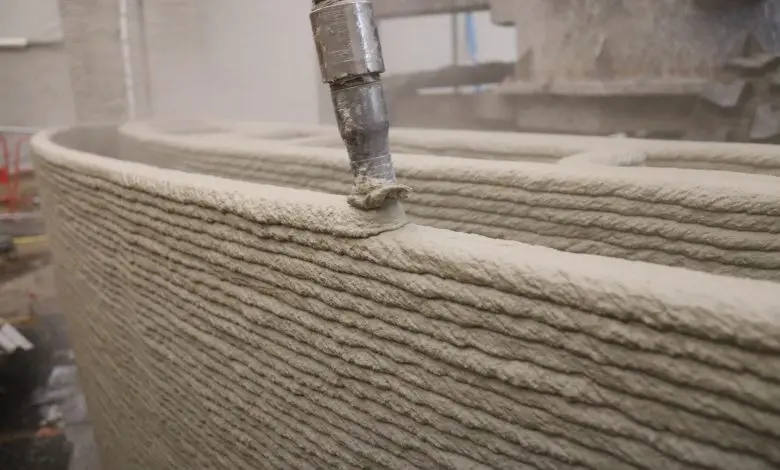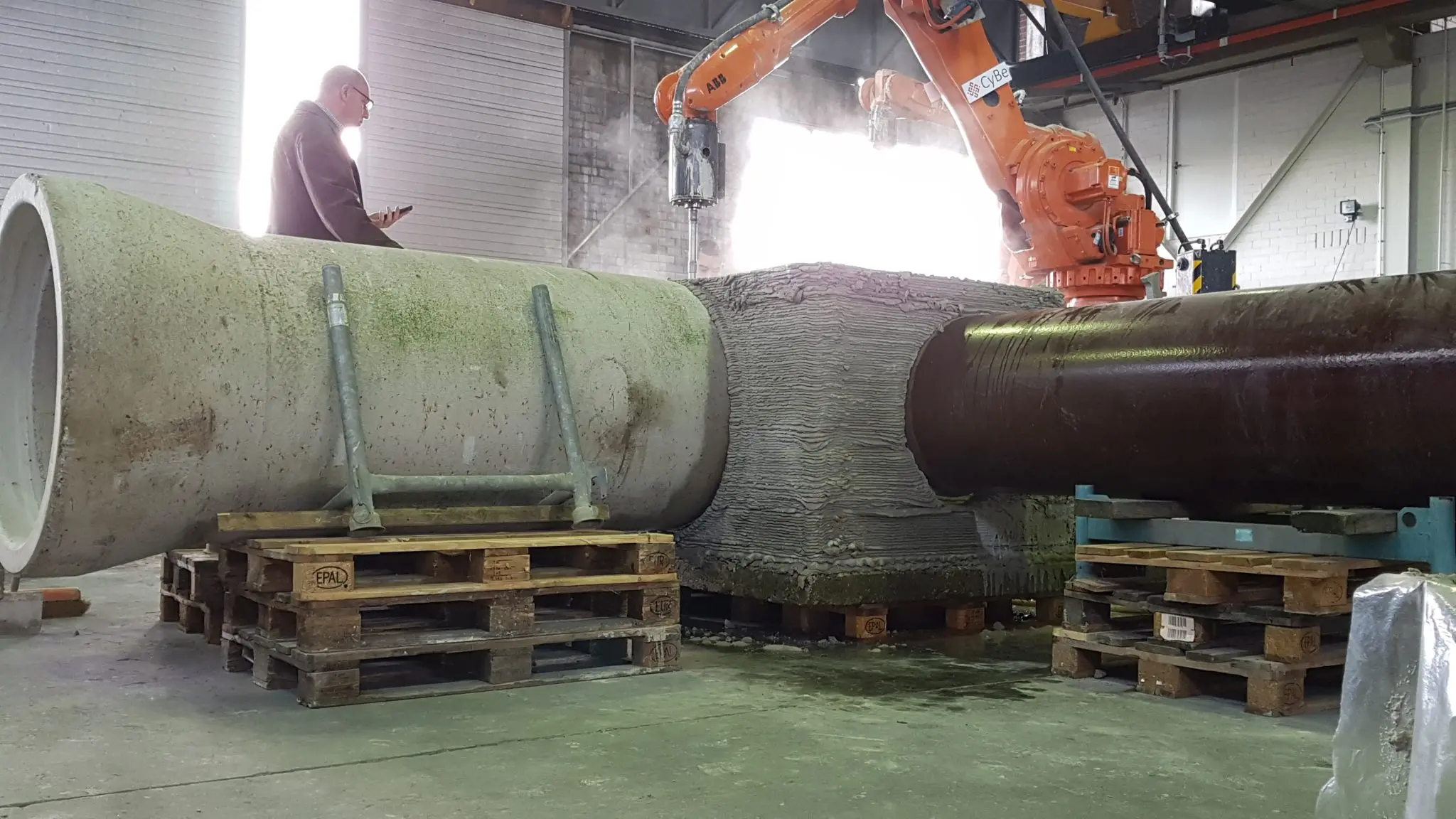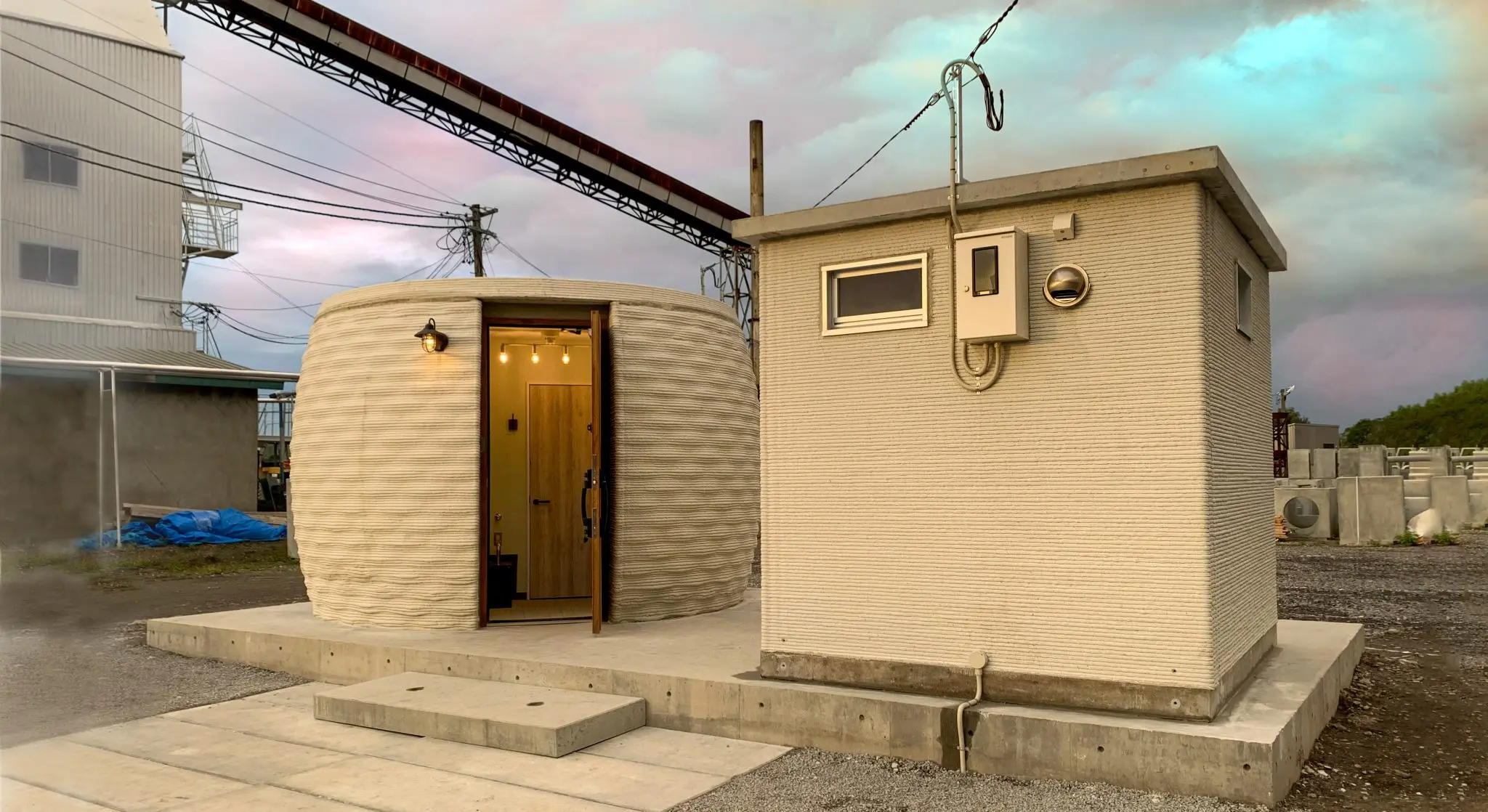
Dutch company CyBe is known in the AM construction world for its robotic 3D printing platform and special MORTAR material. We’ve followed the company in recent years, as it has worked on construction 3D printing projects around the world, including in New Zealand, the United Arab Emirates and Italy. And while the company has been forthcoming about its ABB-based technology, the details of its MORTAR construction material have been fully under wraps. That is, until now.
When we spoke to CyBe founder and CEO Berry Hendricks back in July 2020, he told us some details about the company’s unique, fast-setting concrete. “I came across a family-run company that had this really fast-setting concrete, so the CyBe MORTAR is a co-development with them. The material is 30% our special compound, and then 70% is sand, and this can be sourced locally. We can also play with our compound to achieve different properties and cost.”
Now, the company has revealed who its partner is: Korodur, a manufacturer of specialized building materials based out of Amberg, Germany. Korodur and CyBe have now been working together for nearly a decade (their partnership was formalized in 2012).
“We implemented our first joint project, a residential construction in Dubai, in the desert under the most difficult conditions,” said Frank Sander, Technical Manager at Korodur International GmbH. “Since then, even more exciting properties have been added to this, for example in India, Japan, Indonesia and Saudi Arabia. After putting in years of lab work on the task of perfecting our 3D printing method, this combination of robotics and intelligent mortar has been refined even further. In the process, we have not only gained new insights into the most efficient methods of construction, but have also explored completely new possibilities for applications.”
Manufacturing on Demand
CyBe’s MORTAR is a cement mixture that is specifically engineered for 3D printing. In other words, it is made to be applied layer by layer using a robotic extrusion system. It is also designed for rapid deposition—CyBe’s 3D printers can reach speeds of up to 500 mm per second—thanks to its quick solidification.
The material’s fast-setting nature—made possible by the use of a special additive—also enables structures to be laid quickly, leading to overall faster construction times and lower costs. The nature of AM also has the benefit of increased design freedom, which opens up many possibilities for types of construction.

“The possibilities for application are practically endless! Accurately-fitting service shafts are produced and installed on site in the shortest possible time lags using this innovative technology, for example, allowing damaged conduit access assemblies and connections to be replaced quickly,” Sander added. “In addition, we have already created seating areas as well as combinations of tables and benches for outdoor use. Their exceptional design plus high degree of durability and stability all carry conviction. In any case, sustainability has always been a labour of love for us. A quite spectacular application in this context is the use of the product for the construction of artificial reefs. Thus, at critical locations we would like to help to revive the marine environment and assist the animals, plants and, in particular, corals in developing new habitats.”
The CyBe MORTAR developed by Korodur also has an ecologic advantage over more conventional Portland cement. According to the partners, the production process for the mineral-based MORTAR material is 20% lower than that of Portland cement. The material base is also made in Germany.
Nikola Heckmann, CEO of Korodur, elaborates on this point, saying: “This is an essential part of our corporate philosophy. We consider the careful use of resources and the reduction of emissions to be fundamental to our future viability. For the same reason we are committed to the development of new technologies and processes. This also includes our 3D concrete printing process, with which we have positioned ourselves not only in Europe but throughout the world as an innovative and reliable partner to the construction industry.”
* This article is reprinted from 3D Printing Media Network. If you are involved in infringement, please contact us to delete it.
Author: Tess Boissonneault


Leave A Comment